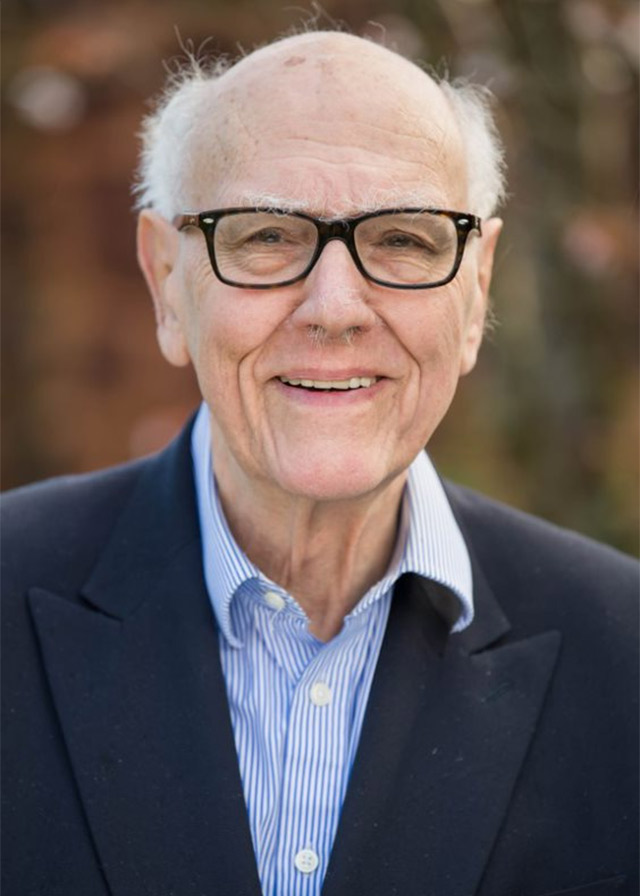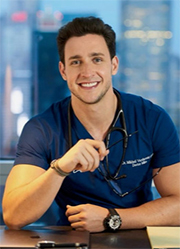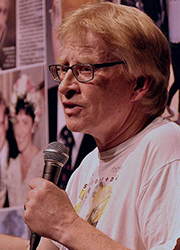Important IT system upgrade
From Friday 12 December
We’re carrying out an important upgrade to our systems to improve the services we provide to our members. This means that access to online systems and contact points, including MyRCGP and the member helpdesk, will be temporarily unavailable from 16:00 on Friday 12 December, with a gradual restoration of services from Monday 15 December.


Cartoon: GP winter pressures
GP Frontline talks to the cardiologist turned tech entrepreneur who is on a mission to provide safe and trustworthy health information to patients

It’s instinctive nowadays to 'Google' something if it doesn’t come to mind straightaway; to get the latest news and gossip from Twitter or Instagram; to look up ‘how to’ guides on YouTube. Long gone are the days of dusting off an old Encyclopaedia Britannica or rooting through an instruction manual.
But how can you be sure the information you’re now getting at the touch of a button is accurate, particularly when the implications of accessing false or misleading information about people's health can be serious. For patients, it could mean accessing inappropriately worrying - or reassuring - information about their health. For GPs, it could mean patients presenting when they don’t need to, putting off making an appointment when they should; or having to spend half a consultation justifying why what they’re saying differs from that of Dr Google.
Dr Garth Graham is on a mission to make this situation safer. He’s Global Head of Health for Google and YouTube, the latter a subsidiary of the former, which for those who don’t count themselves as one of YouTube’s 2 billion+ users globally, allows content creators to share videos, which all other users can potentially see.
Garth, a cardiologist by profession, is based in Florida. I’m speaking to him from RCGP headquarters in London. It's early morning for him, mid-afternoon for me and it seems normal to be conducting an interview using Google Meet, whereas pre-pandemic, it probably wouldn't have been considered except in extraordinary circumstances.
It's an example of how we've adapted, initially out of necessity but rapidly nonetheless, to the 'tech revolution' - but when it comes to access to information, there are still genuine concerns.
In 2017, the RCGP launched '3 before GP', a campaign that aimed to ease pressures on general practice ahead of the winter months. It urged patients, before making a GP appointment for a minor condition or ailment, to consider self-care, to use online sources of advice for help, or to consult a pharmacist. On the day of launch, the front page of the Daily Telegraph read: 'Patients told - ask Dr Google before your GP'. And whilst overwhelmingly landing well, the College had to clarify that people should only consult ‘verified and trusted’ sources of information online, such as NHS.uk.
Have things moved on and should people trust social media platforms like YouTube, more?
Garth's view is that social media 'is where people are, so we have to start meeting them there,' and the focus needs to be on delivering health information responsibly at-scale, and ensuring it is safe, evidence-based and from a trusted source.
He recognises that concern around accessing health information online isn't just about misinformation – although that’s important, for example, in cases of eating disorders and people accessing information that serves as a trigger to exacerbate their condition.
He explains the 4 Rs - the approach Google and YouTube take to managing health information on their platforms.
The 'four Rs'
"We're an open platform. About two thirds of the world's population use YouTube and we allow people to generally express themselves, that's been our success. But we have a very strong onus on responsibility. We don't decide on specific pieces of information - but we draw the line at harmful misinformation, and we work with local health authorities to identify it." He uses misinformation about the safety and efficacy of vaccines as an example of harmful misinformation that will be removed.
"We reduce the prevalence of low quality information which may not actually cause harm but in the vastness of YouTube is not in the best benefit of the public to see."
With YouTube's new health features, good quality health information that is labelled as coming from an authoritative source appears on a health ‘content shelf’, which in effect means it is 'raised up' and appears early in a user's search for information. Producers of that content are rewarded accordingly with more visibility and more views.
Garth and his team have been working with partners across the world to determine what information should be verified - it's very much about the source of the information, as opposed the actual information itself. So much content is uploaded to YouTube at such a rapid pace, it would be impossible to vet or quality assure everything.
Three years into his role, he says: "We have really redefined how healthcare is consumed and delivered on YouTube…we've created products that both label health information, and control how health information shows up."
Initially, in the US, YouTube partnered with the National Academy of Medicine to identify quality health sources. In the UK, the NHS had already been working on producing a standard for creating health content for NHS organisations, and Garth explains how organisations that certified themselves based on that standard were labelled as such for UK audiences and raised up the search process.
YouTube has subsequently worked with the Academy of Medical Royal Colleges, the umbrella organisation for medical Royal Colleges, of which the RCGP is a member, to expand this verification process to individual clinicians and individual organisations, not necessarily affiliated with the NHS.
Under the leadership of their immediate past Chair - and former RCGP Chair - Professor Dame Helen Stokes-Lampard, the Academy convened an expert advisory group to devise a set of processes and principles that individuals and organisations, both NHS and non-NHS, could commit to when producing health information. It culminated in a report published in May this year, Assuring the credibility of health information sources on social media platforms (external PDF).
The four principles the Academy came up with - which have been adopted and 'ingested' into YouTube systems - are that health information should be evidence-based, produced using consistent and documented processes, transparent and accountable, and accessible.
The report is clear that the process of ensuring compliance 'cannot be so bureaucratic, complex or expensive that it deters providers from participating,' but that 'if it is to be of value in providing assurance on the credibility of providers it has to be sufficiently robust'.
It proposes that initial registration should be based on self-assessment and confirmation of being a licenced healthcare professional or organisation; and that ongoing assurance could be done through regular re-registration. It also sets out recommendations for management of non-compliance. It doesn’t dictate how this should be implemented - in the case of YouTube, the provider itself will take this on through the application process to be recognised in its health shelves.
Garth sees the principle of information being evidence-based as imperative to ensuring health information is authoritative and trusted by users, but he acknowledges there will be differences of opinion amongst clinicians.
"Sources should provide information that's consistent with the best evidence available at the time. The truth is a lot of clinical information, or clinical evidence, is dynamic. Some components of care are constantly evolving. The test is [whether content creators] can refer to and identify the context of that evidence. What we don’t want to get into is adjudicating which part of the evidence one views as intimately valid."
It isn’t totally unlike how things work offline, in clinic, he suggests. "As clinicians we try to deliver clinical care based on our training and what we understand as evidence at that moment. [People] trust their clinicians to do that in person; we're saying you should trust that online, on our platform, as individuals commit to that concept."
He also thinks that accountability and transparency are key to mitigating potential conflicts of interest. "Content creators should disclose financial and non-financial conflicts of interest in a way that's accessible to the public. We don't have sponsored content showing up in our health shelves; we don't currently include pharma or insurance companies…my focus has been on broader public health entities, and now licenced clinicians, to be sources of information."
Garth wants GPs to be aware of this work, so that if they feel it appropriate, they can recommend accessing health information on YouTube to patients, with the reassurance that it will adhere to safety and quality principles. But he also wants GPs to become content creators. YouTube has opened up applications for individual clinicians to be included in their health content shelves. They've also held training events for clinicians to attend who are keen to become content creators.
Garth’s excited about the concept of 'democratising information' and this speaks to the Academy’s fourth principle: accessibility. And his ambitions aren’t limited to the US, or the UK - it’s about delivering at scale and opening up access to healthcare information for people in areas of the world where access to actual healthcare is more challenging.
“What other way is somebody able to get information from some of the most talented doctors in the NHS without having to show up for an appointment but accessing that person and have them explain things to you?” he says.
It’s one reason why Garth made the switch from cardiology (although he's still licenced to practise) to tech: “The attraction to me was how we can use technology as a tool to improve the quality of information patients get and ultimately help to empower them to make better health decisions," he explains, "I realised that the patient's journey begins way before they enter the doctor's surgery.
“At a public health level, the old-school way of doing flyers and billboards in public health are fast going away because people are consuming information in a more dynamic way… so it’s about how we reach people at scale using technologies that are already a part of their daily routine.”
To cynics who question the motivations of Google and YouTube for entering into this space, Garth urges them to look beyond the specific platforms and whatever prejudices they may have towards them. "It's the idea of improving health information, ensuring it is evidence-based, accessible information. That's what important, not Google or YouTube,” he says. He points to the Academy’s principles being meant more broadly for social media and tech platforms in general.
“I always encourage scepticism because scepticism and science are how we ensure we are having an objective eye on our efforts. But it's not about us. Of course, we like to be first, but we genuinely hope a vast array of other platforms get engaged and blossom in this field around the world."
Read more
Thank you for your feedback. Your response will help improve this page.



